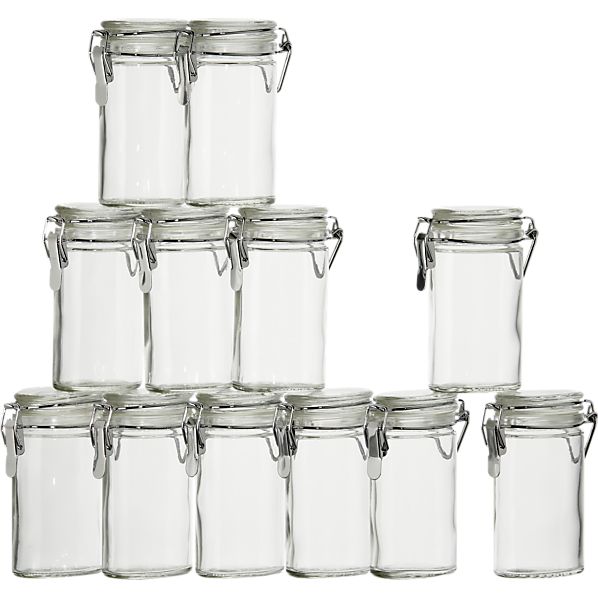
Tuesday, August 13, 2013
Monday, July 29, 2013
Friday, July 26, 2013
Save Time, Money and Sanity
April Thompson
Labels abound: pack rat, clutter bug and hoarder. Just the
thought of confessing that our clutter needs conquering can inspire
shame, anxiety and dread. It helps to remember that it’s human to
accumulate, divine to purge.“We’re hardwired to be hunters and gatherers and feather our nests, but you have to consider the life energy you spend maintaining all those things. The trade-off is often huge,” says home organizing expert Barbara Tako, of Minneapolis, Minnesota, author of Clutter Clearing Choices.
Seventy percent of Americans feel buried under their clutter and can’t decide what to give up, according to an online poll by award-winning organizer Julie Morgenstern, of New York City. She has found that while the clutter may be physical, the process of shedding it is 80 percent mental. “Decluttering is identifying what is obsolete in your life and releasing it to make room to move forward,” advises the author of Shed your Stuff, Change your Life.
“Ask yourself, what am I clearing space for—more family time, a social life or inner peace?” That higher goal is a touchstone for what to keep and what to pitch.
Following are common clutter-based roadblocks and tips from professional organizers on how to get around them.
I’m so overwhelmed I don’t know where to start. Tako encourages clients to start with the visible clutter, such as junk accumulated in an entryway, and take 10 to 15 minutes to tackle the area. “People are always surprised by how much they can accomplish in a short time,” she comments.
Morgenstern recommends making a checklist, starting with the areas with the most obsolete stuff and the least sentimental attachments. “The first one is the hardest, but you’ll probably find a lot of opened space if you can get through a few areas; then there is a cascading effect as you move forward.”
I know I have too much stuff, but it all has sentimental value. Morgenstern recommends using tools to manage memories, such as photographing an object that represents a person, and then using that photo as a contact icon on your phone. She suggests considering, “Is this the best representation of that person or time of my life, or just another example?”
I might need this someday. Tako encourages people to enlist a clutter buddy, “an objective set of eyes who will set you straight when you hold up a skirt that’s out of style.” Morgenstern suggests asking, “What is more important to me… this object I don’t have any immediate need for or the space I’ll have by getting rid of it?”
I don’t have time to declutter now. Morgenstern acknowledges most people are “time-starved”, and cleaning out their closets is the last thing they want to do with precious free time. Yet clutter costs us time and money because, “You end up losing things, wasting valuable real estate and replacing things you forgot you had,” she notes. It also hinders our ability to focus and process information, because visual clutter divides and competes for a person’s limited attention span, according to a recent study by the Princeton University Neuroscience Institute.
For more motivation, imagine the joy of finding buried treasure. Morgenstern reports that nearly all of her clients find some form of funds, whether uncashed checks, objects with resale value or cash.
I sorted piles a few months ago and now they’re back. Los Angeles organizer and blogger John Trosko encourages people to be upfront with loved ones about holidays and special occasions, asking that they curtail gifts and instead give non-tangible forget-me-nots like gift certificates or favorite services. Trosko also suggests making a list before shopping and steering clear of megastores to keep impulse spending in check.
Tako and Trosko both discourage purchasing “unitaskers” such as a salad spinner that takes up significant space but rarely get used. Another good rule of thumb is, “one in, one out,” discarding something every time we purchase a new item.
Even armed with the best decluttering tips, the process can seem daunting. Morgenstern encourages us to suspend self-judgment while weeding through possessions and keep remembering our higher goals. “Your stuff is a reflection of who you are and what you aspire to,” she notes. “It’s a challenge to get it all in alignment, but an incredible opportunity, too.”
To find a nearby professional organizer, contact the National Association of Professional Organizers at napo.net.
Wednesday, July 24, 2013
Tuesday, July 23, 2013
Saturday, July 20, 2013
Culture of clutter: Healthy Living - Atlanta Psychologist
www.dunwoodypsychologists.com/Articles/Culture%20of%20clutter.htm
"People used to be hunters and gatherers, so we were ingrained with that ... say there are a number of reasons for the hoarding of such common-place items.Friday, July 19, 2013
Wednesday, July 17, 2013
Tuesday, July 16, 2013
ABOUT US
 Corinne has an extensive background assisting clients in
bringing their visions to life. With each project, she draws
from years of experience as a Special Events
Planner and
her work in the field of
Mental Health. She
is also a member
of The National Association
of Professional Organizers. Corinne's approach to her work is personally adapted
for
each client. She possesses the natural gift of turning chaos into creative order. She values each person's uniqueness
and fosters a non-judgmental working environment. Corinne works hands-on with her client helping
them
to meet
their organizational needs. Her compassion and humor
helps to
energize the process, while holding
the focus, and
keeping
the client on task. As a result
of this collaboration,
the client
is inspired to RECLAIM THEIR SPACE and bring
to it the
things
that most matter.
Corinne has an extensive background assisting clients in
bringing their visions to life. With each project, she draws
from years of experience as a Special Events
Planner and
her work in the field of
Mental Health. She
is also a member
of The National Association
of Professional Organizers. Corinne's approach to her work is personally adapted
for
each client. She possesses the natural gift of turning chaos into creative order. She values each person's uniqueness
and fosters a non-judgmental working environment. Corinne works hands-on with her client helping
them
to meet
their organizational needs. Her compassion and humor
helps to
energize the process, while holding
the focus, and
keeping
the client on task. As a result
of this collaboration,
the client
is inspired to RECLAIM THEIR SPACE and bring
to it the
things
that most matter.
Subscribe to:
Comments (Atom)










